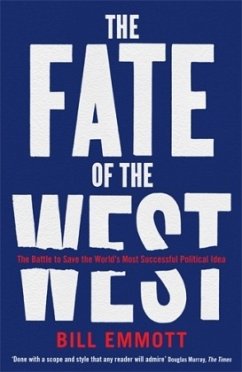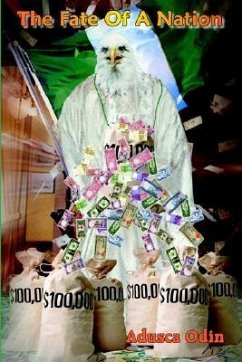
The Fate of the West
The Battle to Save the World's Most Successful Political Idea
Versandkostenfrei!
Sofort lieferbar
11,99 €
inkl. MwSt.

PAYBACK Punkte
6 °P sammeln!
When faced with global instability and economic uncertainty, it is tempting for states to react by closing borders, hoarding wealth and solidifying power. We have seen it at various times in Japan, France and Italy and now it is infecting all of Europe and America, as the vote for Brexit in the UK has vividly shown. This insularity, together with increased inequality of income and wealth threatens the future role of the West as a font of stability, prosperity and security. Part of the problem is that the principles of liberal democracy upon which the success of the West has been built have bee...
When faced with global instability and economic uncertainty, it is tempting for states to react by closing borders, hoarding wealth and solidifying power. We have seen it at various times in Japan, France and Italy and now it is infecting all of Europe and America, as the vote for Brexit in the UK has vividly shown. This insularity, together with increased inequality of income and wealth threatens the future role of the West as a font of stability, prosperity and security. Part of the problem is that the principles of liberal democracy upon which the success of the West has been built have been suborned, with special interest groups such as bankers accruing too much power and too great a share of the economic cake.
So how is this threat to be countered? States such as Sweden in the 1990s, California at different times or Britain under Thatcher all halted stagnation by clearing away the powers of interest groups and restoring their societies' ability to evolve. To survive, the West needs to be porous, open and flexible. From reinventing welfare systems to redefining the working age, from reimagining education to embracing automation, Emmott lays out the changes the West must make to revive itself in the moment and avoid a deathly rigid future.
So how is this threat to be countered? States such as Sweden in the 1990s, California at different times or Britain under Thatcher all halted stagnation by clearing away the powers of interest groups and restoring their societies' ability to evolve. To survive, the West needs to be porous, open and flexible. From reinventing welfare systems to redefining the working age, from reimagining education to embracing automation, Emmott lays out the changes the West must make to revive itself in the moment and avoid a deathly rigid future.












